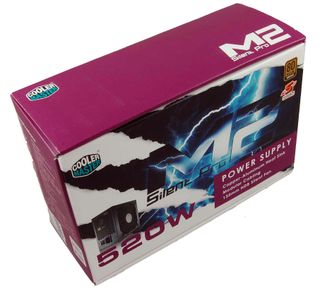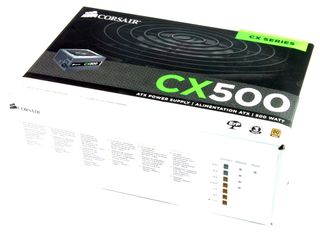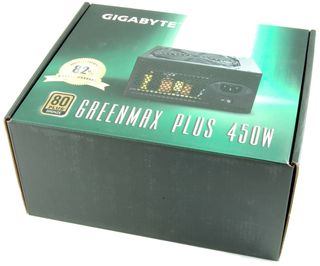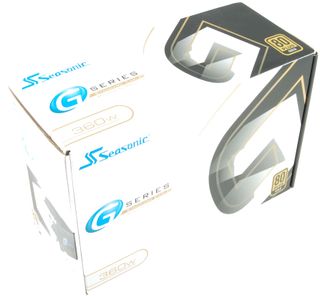Part 2: Four Cheap 80 PLUS Bronze Power Supplies, Reviewed
Ready for part two of our low-cost power supply round-up? Here are four more products, including Seasonic's SSR-360GP, which is 80 PLUS Gold-certified. Is this little 360 W PSU the bargain of the century, or is its Gold label simply pyrite?
Part 2: Which One Of These PSUs Is Right For You?
In yesterday's half of this round-up, we suggested that it is possible to find a well-built, efficient power supply at a value-oriented price. But don't be duped by cheap PSUs. An 80 PLUS Bronze logo is not a promise of quality. In fact, Cougar's A350 is advertised with the Bronze rating and can't even achieve the necessary efficiency levels to justify that badge. Fortunately, all of the power supplies in part two at least satisfied the efficiency specifications they advertise. Nevertheless, our testing still uncovers a handful of weaknesses spread through the field.

We'll start with a power supply that appears free of any serious issues: Cooler Master's Silent Pro M2 520. Modular cable management helps it stand apart from the crowd, and its workmanship is darned near perfect. For all of that, however, you'll need to pay a price at the upper end of our budget range. The Silent Pro M2's hold-up time and sound level results are both commendable. If you want above-average power and are thinking of building a more graphics-heavy system, you should consider this PSU, though remember it's not available in the U.S. yet, so you may find yourself shopping for the 550 or 650 W versions instead.

Corsair's CX500 is rated for 20 W less, but at a retail price of $60, it is also less expensive. Apart from its lower maximum output, the CX500 loses modular cable management compared to Cooler Master's offering. And ready availability in the U.S. means we'd be more inclined to favor Corsair's offering. After all, you still get a pair of auxiliary PCI Express power connectors, along with quality that leaves almost nothing to be desired. Workmanship, interior construction, sound level, and efficiency are all good. The CX500 would be close to perfect, actually, if there wasn't an issue with its short hold-up time. All in all, this is decent budget-oriented PSU.

Too-few connectors and relatively low power output are the two biggest detractors from Gigabyte's Greenmax 450 Plus. It also doesn't help that we're not finding it for sale in the U.S., making it impossible to judge its value proposition. Should it show up soon, know that its electrical quality is impressive, aside from high inrush current. On the plus side, its hold-up time is very long. We do take issue with the power supply's acoustic output. Gigabyte's submission is the loudest of the PSUs we tested, and that applies to both load profiles. A sound level above 35 dB(A) cannot qualify as quiet. Sorry.

Maxing out at just 360 W, Seasonic's SSR-360GP seems pretty puny compared to the other power supplies in our round-up. However, it's also the only PSU bearing an 80 PLUS Gold rating for a scant $60. It delivers on that promise, too. Its outstanding efficiency runs rings around the other test candidates. Unfortunately, it doesn't give you many connectors. Great efficiency translates to less waste heat. As a result, the SSR-360GP's fan doesn't have to spin very fast. We measured just a tad over 30 dB(A), which is very quiet indeed.
Stay on the Cutting Edge
Join the experts who read Tom's Hardware for the inside track on enthusiast PC tech news — and have for over 25 years. We'll send breaking news and in-depth reviews of CPUs, GPUs, AI, maker hardware and more straight to your inbox.
Current page: Part 2: Which One Of These PSUs Is Right For You?
Prev Page Efficiency According To The 80 PLUS Spec, Standby Power, And Sound Level Next Page Model Comparison Table-
pepsimtl Please, if you could say , if the power supply is compatible with Haswell .I think this is very important .Reply -
jeffunit I am not sure why you think that a 40w bulb is purely resistive. Almost all bulb filaments are coiled, which makes them inductive. For example, http://www.donsbulbs.com/cgi-bin/r/b.pl/h4652|12.8v|40w|60w~usa.html shows a 12v 40w bulb filament, which is coiled.Reply
Perhaps you should measure the inductance of your bulbs, rather than just stating they are purely resistive. -
vertexx A couple different PSUs for different applications. I use the Corsair CX 430 & 500 for budget gaming builds, and just this week I ordered the Seasonic for the first time for a home server build. Nice to see those choices validated.Reply
Thanks guys, nice article! -
Someone Somewhere ReplyIn spite of its low price, no important components fall victim to cost cutting.
In the CX500. I think Samxon caps count as cost cutting. -
flong777 I have recommended the CX500 many times to budget builders and now I feel better about it. It is the clear winner. Funny TH says it is loud but it was nearly identical to the CM 520 on their chart in DB noise.Reply
On sale you can pick up the CX500 for $40 which is about as cheap as you will ever find any PSU. If you compare how well that Corsair backs its products, there really is no comparison - Corsair is the only choice.
As far as the Seasonic 360, why on earth would you buy a 360W PSU? I just don't see the point. While I can justify a 500W PSU to a budget builder, I really cannot comprehend recommending a 360W PSU to anyone. I feel cautious with a low wattage 500W PSU. All of these PSUs will run hot and loud if they are stressed and so moving up to a 650W or even an 850W PSU really is not that more expensive.
I got the gold rated 850W Corsair HX 850 for $144.00 on sale. I can not even begin to describe how excellent this PSU is. It runs as something around 92% efficiency under load and I have never hear the fan even come on (it may be that low fan is inaudible). It comes with a 7-year warranty and is modular.
If you are not strapped with a low budget, moving up is the only way to go. If you are, the CX 500 is a good choice.
-
vertexx Reply
I just ordered the Seasonic for a home server build. The higher efficiency is a plus since it will be running 24x7. Plus, the system really doesn't need the extra wattage.11443584 said:As far as the Seasonic 360, why on earth would you buy a 360W PSU? I just don't see the point. While I can justify a 500W PSU to a budget builder, I really cannot comprehend recommending a 360W PSU to anyone.
PSUs run more efficiently under load. IMO, the trend has been to overkill on the PSU when it's not really needed. In reality, when you actually add up the max loads of all components a 350-450W PSU is more than enough to run most single GPU gaming builds.
-
vertexx Reply
It's been a while since I've been involved in DC power calculations, but these bulbs are DC bulbs. At DC steady state, what role does inductance play?11443366 said:I am not sure why you think that a 40w bulb is purely resistive. Almost all bulb filaments are coiled, which makes them inductive. For example, http://www.donsbulbs.com/cgi-bin/r/b.pl/h4652|12.8v|40w|60w~usa.html shows a 12v 40w bulb filament, which is coiled.
Perhaps you should measure the inductance of your bulbs, rather than just stating they are purely resistive.
Most Popular

